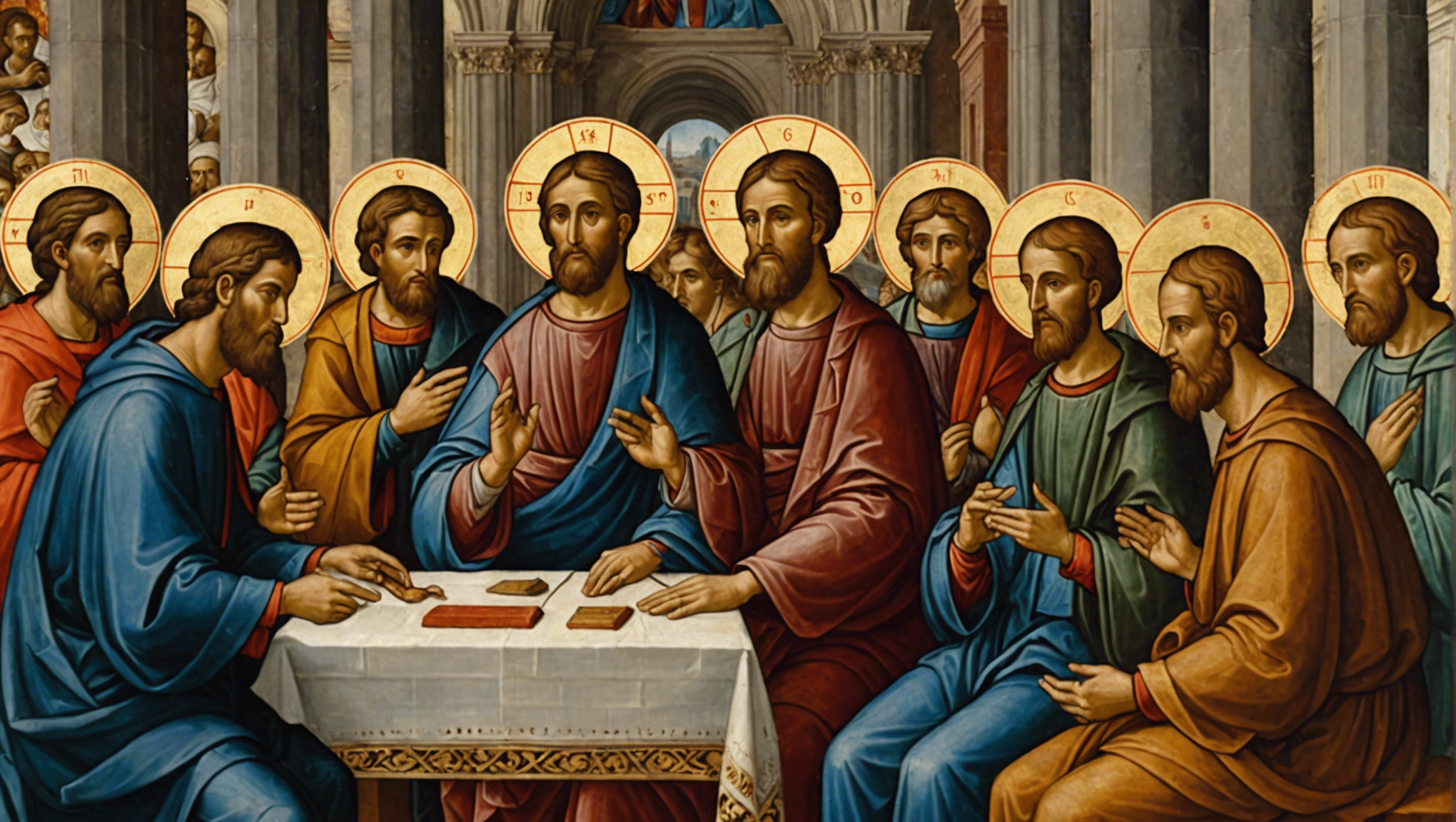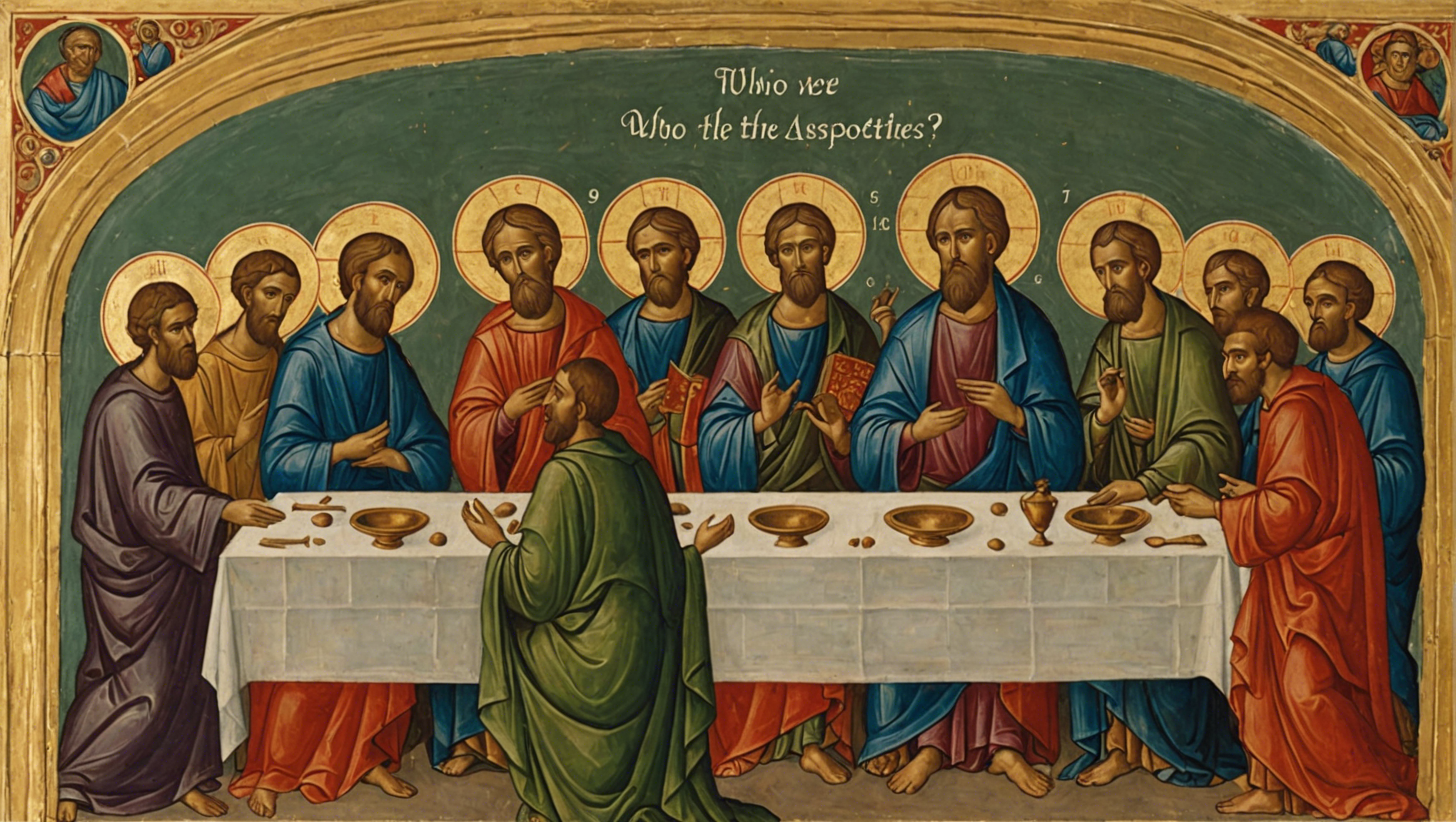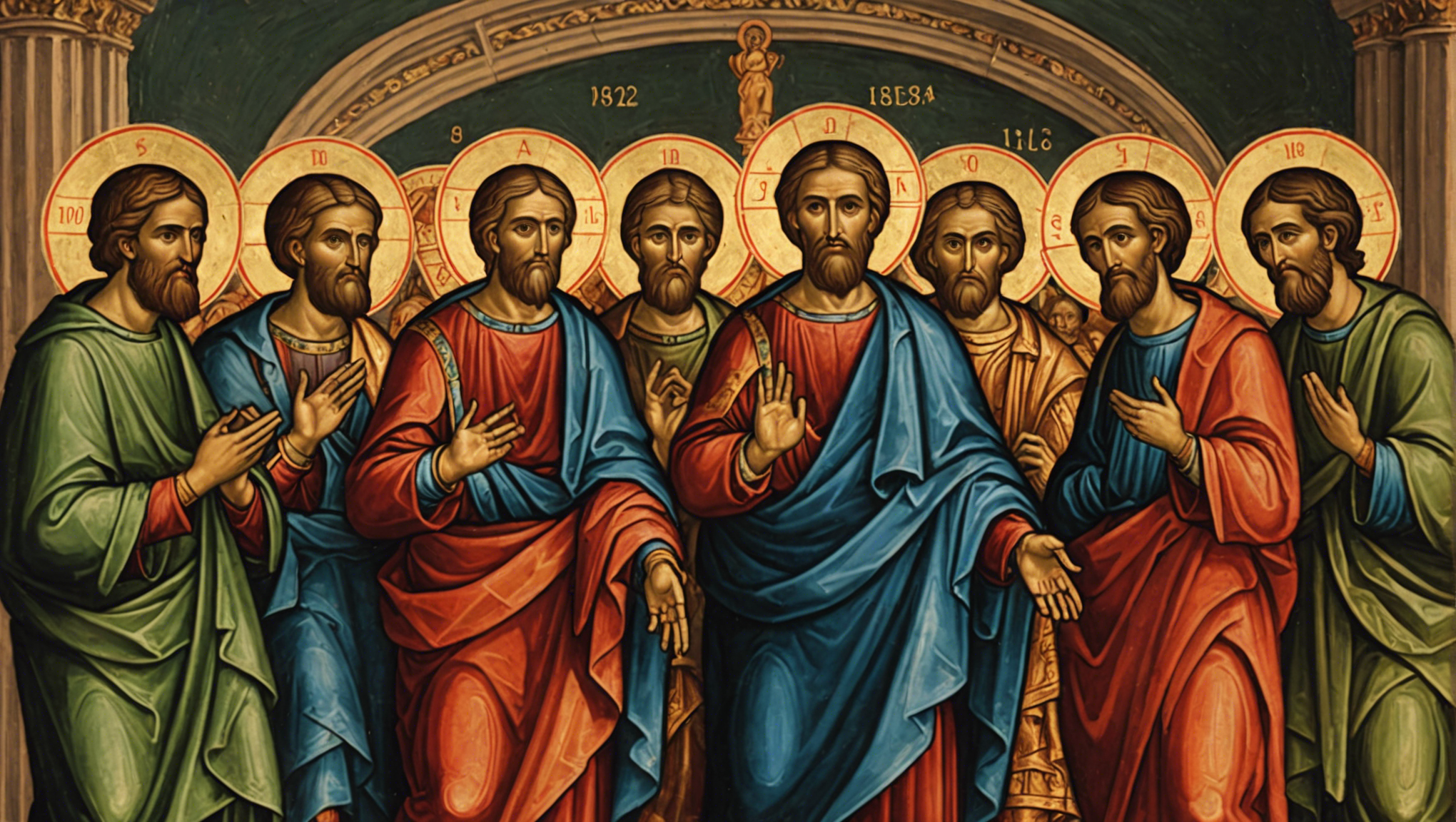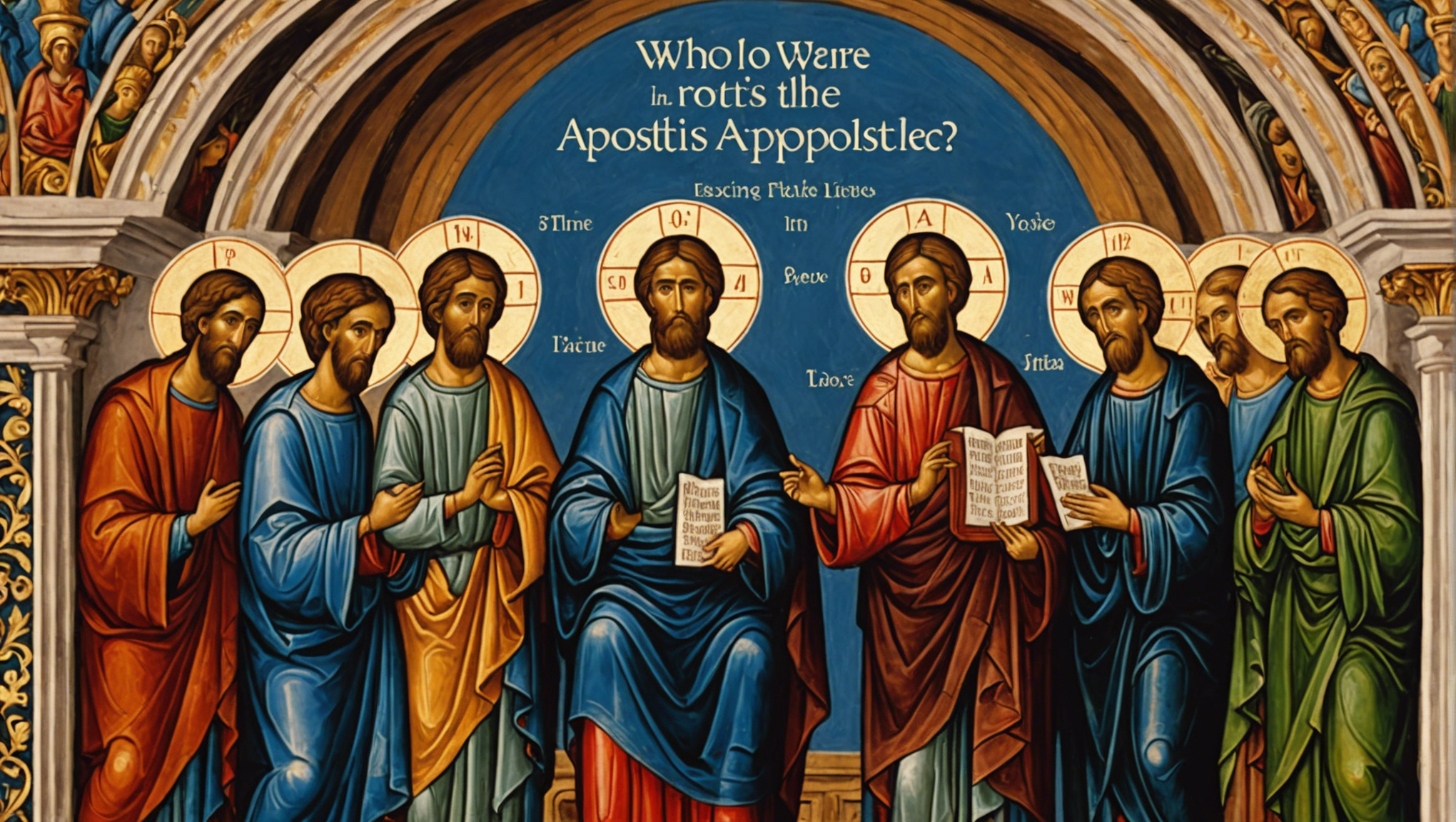Discover the fascinating lives and profound teachings of the Apostles in this insightful article. Join us as we delve into the rich history and impactful message of these influential figures in Christianity.
The Origins of the Apostles

Apostles in the Early Christian Church
The apostles, known as the early followers of Jesus Christ, played a vital role in the establishment and growth of the Christian faith. Chosen by Jesus himself, the apostles were entrusted with spreading his teachings and guiding the early Christian communities. Their collective efforts were instrumental in laying the foundation of the Christian Church.
The Twelve Apostles
Among the most well-known apostles are the Twelve Apostles, chosen by Jesus to be his closest companions and to continue his work after his crucifixion. This group includes prominent figures such as Peter, John, James, and Andrew, each bringing unique qualities and perspectives to the mission.
Recruitment and Mission
The recruitment of the apostles by Jesus symbolizes the diversity of backgrounds and experiences within the early Christian community. While some were fishermen or tax collectors, others were zealots or scholars. Despite their differences, they were united by their shared commitment to spreading the message of Jesus.
Teachings and Miracles
The apostles not only preached the gospel but also performed miracles that demonstrated the power and presence of God. From healing the sick to multiplying loaves of bread, these extraordinary acts served to strengthen the faith of believers and attract new followers to the Christian movement.
Persecution and Martyrdom
As the Christian faith faced persecution and opposition, many of the apostles endured hardships and ultimately laid down their lives for their beliefs. Peter, for example, was crucified upside down, while Paul was beheaded. Their sacrifices became powerful symbols of faith and resilience for future generations of Christians.
Legacy and Influence
The legacy of the apostles continues to resonate in the teachings and traditions of the Christian Church. Their courage, dedication, and unwavering faith have inspired countless believers throughout history. Today, their impact can be seen in the global reach of Christianity and the enduring message of love and redemption they helped to propagate.
The 12 Disciples of Jesus

The Apostles: The 12 Disciples of Jesus
The apostles, also known as the 12 disciples of Jesus, played a pivotal role in spreading the teachings of Jesus Christ and establishing the early Christian Church. Each apostle had a unique background and personality, contributing to the diverse and dynamic group that followed Jesus during his ministry.
Simon Peter
Simon Peter, also known as the “Rock,” was one of Jesus’ closest disciples and a natural leader among the apostles. Despite his initial doubts and denials of Jesus, Peter went on to become a central figure in the early Church, known for his boldness and faithfulness even in the face of persecution.
James and John
James and John, the sons of Zebedee, were known as the “Sons of Thunder” due to their fiery temperament. They were part of Jesus’ inner circle and witnessed key events such as the Transfiguration and the Agony in the Garden. James was the first apostle to be martyred, while John went on to write the Gospel of John and the Book of Revelation.
Andrew
Andrew, the brother of Peter, was a humble and faithful disciple who played a crucial role in bringing others to Jesus. He is best known for introducing Simon Peter to Jesus and for his willingness to serve in the background without seeking recognition.
Thomas
Thomas, often referred to as “Doubting Thomas,” is remembered for his skepticism regarding Jesus’ resurrection. Despite his initial doubts, Thomas displayed great faith and devotion to Jesus, declaring him as “My Lord and my God.”
Matthew
Matthew, also known as Levi, was a tax collector before being called by Jesus to follow him. His Gospel emphasizes Jesus’ teachings on mercy and forgiveness, reflecting his own transformation from a tax collector to a devoted disciple.
Philip
Philip was known for his practical and logical approach to faith, often asking Jesus insightful questions. He played a role in the feeding of the 5,000 and later witnessed the coming of the Holy Spirit at Pentecost.
Bartholomew
Bartholomew, also known as Nathanael, was a man of integrity and sincerity. He initially doubted if anything good could come from Nazareth but became a faithful follower of Jesus after a profound encounter with him.
James the Less
James the Less, also known as James the son of Alphaeus, was a relative of Jesus and a man of quiet strength and dedication. He played a key role in the early Church in Jerusalem and is often distinguished from James, the son of Zebedee.
Simon the Zealot
Simon the Zealot was a former Jewish nationalist who became a devoted follower of Jesus. His zeal for God’s kingdom was transformed into a zeal for spreading the gospel, reflecting a radical change in his beliefs and mission.
Judas Iscariot
Judas Iscariot, infamous for betraying Jesus, serves as a cautionary tale of greed and betrayal. Despite witnessing Jesus’ miracles and teachings, Judas gave in to his selfish desires, leading to tragic consequences.
Matthias
Matthias was chosen to replace Judas Iscariot among the 12 apostles through prayer and casting of lots. He faithfully served alongside the other apostles, playing a vital role in early Christian ministry.
The apostles’ diverse backgrounds, personalities, and experiences exemplify the transformative power of Jesus’ teachings and the profound impact of their witness on spreading the gospel throughout the world.
The Significance of Apostleship

Apostleship in Early Christianity
In the early Christian Church, apostles played a pivotal role in spreading the teachings of Jesus Christ. These individuals were chosen by Jesus himself and were considered to be his closest companions during his ministry on Earth. The word “apostle” derives from the Greek term “apostolos,” which means “one who is sent forth.”
The Authority of Apostles
Apostles held a unique position of authority within the Christian community. They were seen as having been directly commissioned by Jesus to carry out his mission and to establish the foundation of the Church. This authority granted to them by Jesus himself distinguished them from other members of the early Christian community.
The Role of Apostles
One of the primary roles of the apostles was to be witnesses to the life, death, and resurrection of Jesus Christ. They were tasked with spreading the Good News of salvation to all nations and were instrumental in establishing churches in various regions. The apostles also played a crucial role in resolving disputes and providing guidance to the early Christian communities.
The Legacy of Apostleship
The teachings and actions of the apostles left a lasting legacy that continues to influence Christianity to this day. The writings of the apostles, found in the New Testament, form the basis of Christian doctrine and provide guidance for believers around the world. The role of apostleship has evolved over time, but the foundational principles established by the original apostles remain central to the Christian faith.
Through their dedication, sacrifice, and unwavering commitment to spreading the message of Jesus Christ, the apostles played a crucial role in the early development of Christianity. Their significance lies not only in their actions during their time on Earth but also in the enduring impact of their teachings and writings on the Christian faith.
The Journey of the Apostles
The Early Years
Before they were known as the Apostles, they were ordinary individuals with varied backgrounds. From fishermen like Peter, Andrew, James, and John to the tax collector Matthew, each Apostle had a unique journey that led them to follow Jesus.
The Call to Follow
One of the defining moments in the Apostles’ lives was when Jesus called them to be his followers. Whether it was by the Sea of Galilee or at their workplace, the Apostles heard the call and made the life-altering decision to leave everything behind and embark on a journey with Jesus.
Witnessing Miracles and Teachings
As they traveled with Jesus, the Apostles witnessed firsthand his miracles and teachings. From the feeding of the five thousand to the calming of the storm, these experiences deepened their faith and understanding of Jesus’ divinity.
The Last Supper and Betrayal
During the Last Supper, Jesus shared a poignant moment with his Apostles, instituting the Eucharist and foretelling his betrayal. Judas Iscariot’s act of betrayal marked a somber turn in the Apostles’ journey, leading to Jesus’ crucifixion.
The Resurrection and Ascension
After the resurrection, the Apostles encountered the risen Christ, solidifying their belief in his victory over death. Jesus’ ascension into heaven marked the end of his earthly journey with the Apostles, but it also ignited the mission for them to spread the Gospel to the ends of the earth.
Spreading the Gospel
Empowered by the Holy Spirit at Pentecost, the Apostles fearlessly preached the Gospel, performing miracles and baptizing converts. Despite facing persecution and hardships, they remained steadfast in their mission to share the good news of Jesus Christ.
The Teachings of the Apostles
Apostles and Their Role in Spreading Christianity
The Apostles played a crucial role in the spread of Christianity following the death and resurrection of Jesus Christ. Chosen by Jesus himself, the Apostles were tasked with sharing his teachings and establishing the early Christian Church. Traveling far and wide, they spread the gospel message and converted many to the newfound faith.
1. Love and Compassion: Central to the teachings of the Apostles was the importance of love and compassion. They emphasized the need to love one another as Jesus had loved them, showing kindness and empathy towards all.
2. Faith and Belief: The Apostles stressed the significance of having faith and belief in God. They taught that through faith, miracles could be performed and mountains could be moved.
3. Forgiveness and Redemption: Another key teaching was the idea of forgiveness and redemption. The Apostles preached that through repentance and seeking forgiveness, one could be redeemed and find salvation.
4. Service and Humility: Humility and service were also core teachings of the Apostles. They exemplified the importance of serving others with humility, following the example set by Jesus during his ministry.
Legacy of the Apostles
The teachings of the Apostles laid the foundation for the Christian faith and continue to influence believers today. Their writings, found in the New Testament, provide guidance on how to live a faithful and righteous life. The Apostles’ dedication to spreading the gospel message has left a lasting impact on Christianity, shaping its beliefs and practices for generations to come.
By examining the teachings of the Apostles, we gain a deeper understanding of the principles and values that underpin the Christian faith. Their lessons on love, faith, forgiveness, and service remain relevant in today’s world, offering guidance on how to live a life rooted in spiritual truth and moral integrity.
The Legacy of the Apostles
Apostolic Times: The Early Years
The apostles, known as the chosen twelve, were among the closest followers of Jesus Christ during his ministry on earth. They played a pivotal role in spreading the teachings of Jesus and establishing the early Christian Church. Each apostle had a unique background and personality, contributing to the diverse tapestry of the group.
Their Mission and Teachings
Commissioned by Jesus to preach the gospel and make disciples of all nations, the apostles embarked on journeys far and wide, braving persecution and hardships to fulfill their mission. They carried forth the message of love, forgiveness, and redemption to all corners of the known world, inspiring countless individuals to embrace the Christian faith.
Their Martyrdom and Sacrifice
The legacy of the apostles is also marked by their ultimate sacrifice. Many of them faced persecution and martyrdom for their unwavering faith and commitment to spreading the message of Jesus. Despite facing intense opposition and hardship, they remained steadfast in their beliefs, becoming enduring symbols of courage and devotion.
Impact and Legacy
The influence of the apostles extended far beyond their lifetimes, shaping the course of Christianity and leaving an indelible mark on history. Their teachings continue to resonate with believers around the world, serving as a guiding light for those seeking spiritual fulfillment and redemption. The legacy of the apostles remains a testament to the enduring power of faith and the transformative impact of love and compassion.
